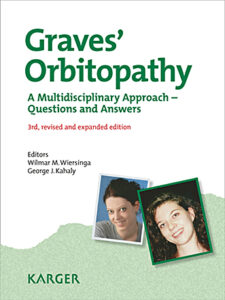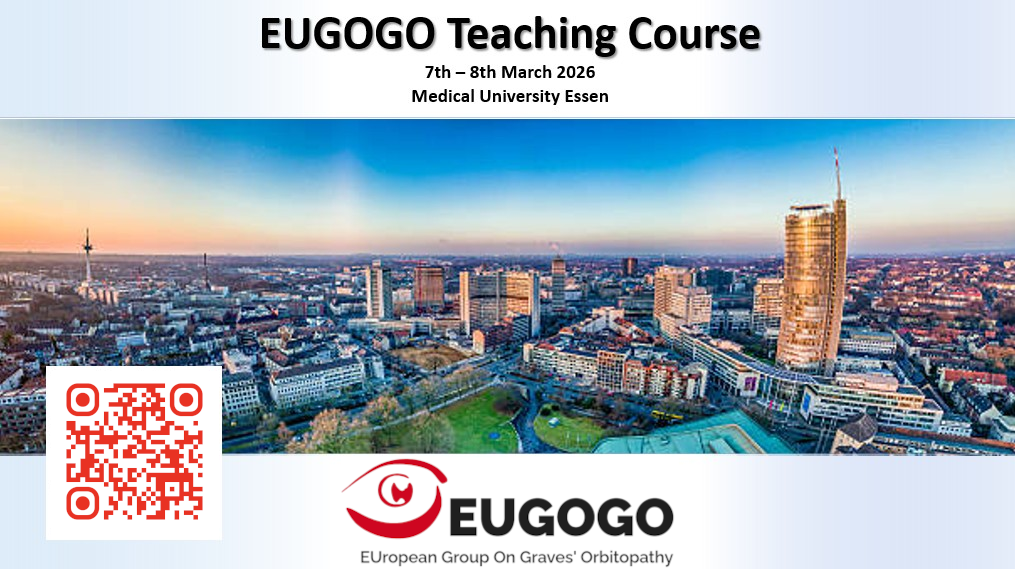Publications & Guidelines
EUGOGO Book
EUGOGO published a meanwhile popular book on GO which is already in it’s 3rd edition.

EUGOGO Publications
Presentation of Graves’ orbitopathy within European Group On Graves’ Orbitopathy (EUGOGO) centres from 2012 to 2019 (PREGO III)
April, 2023
The 2021 European Group on Graves’ orbitopathy (EUGOGO) clinical practice guidelines for the medical management of Graves’ orbitopathy.
April, 2021
Asymmetry indicates worse disease in Graves’ Orbitopathy: results from a prospective cross-sectional multicentre study.
December, 2020
Upcoming Events & Activities
EUGOGO Activities
ESSEN, Germany March 2026 Teaching course
March 7, 2026
|
Courses
Non-EUGOGO Events
ETA TED Masterclass
February 20, 2026
47th Annual Meeting of the European Thyroid Association
September 5, 2026
Graves’ Orbitopathy
Graves’ Orbitopathy (GO), also known as thyroid eye disease (TED), or dysthyroid orbitopathy is a disease of the orbit affecting the orbital soft tissues. It is a possible cause of visual deterioration and double vision and is closely correlated to autoimmune thyroid dysfunctions, particularly with Basedows’ or Graves’ disease (GD).
The Society
EUGOGO is a multidisciplinary Scientific Society of ophthalmologists, endocrinologists, basic scientists and (neuro-)radiologists who have a special clinical and research interest in GO with the overriding goal of improving patient care.
All members are well recognized for their high level of experience in this field and their clinic represents a tertiary referral centre for GO connecting involved medical disciplines in their multidisciplinary Combined Thyroid Eye Clinics.
Understanding GO
EUGOGO aims to contribute to a better understanding of the pathogenesis of GO and thus promotes the development of new beneficial therapies and their translation into clinical practice. This can only be achieved through collaborative multicentric and multidisciplinary scientific basic and clinical research.
Education
EUGOGO contributes towards education, teaching and training of our young colleagues in our clinics and all interested health professionals involved in the care of patients with GO in our annual teaching courses around Europe.



